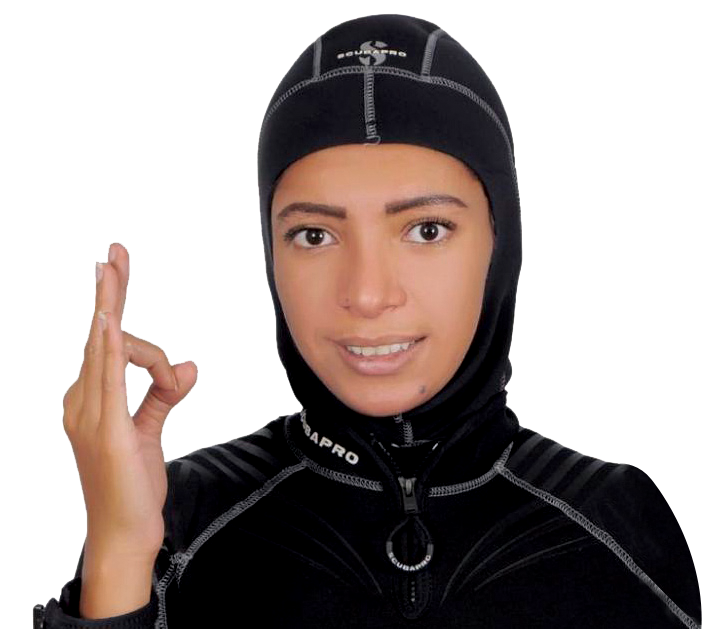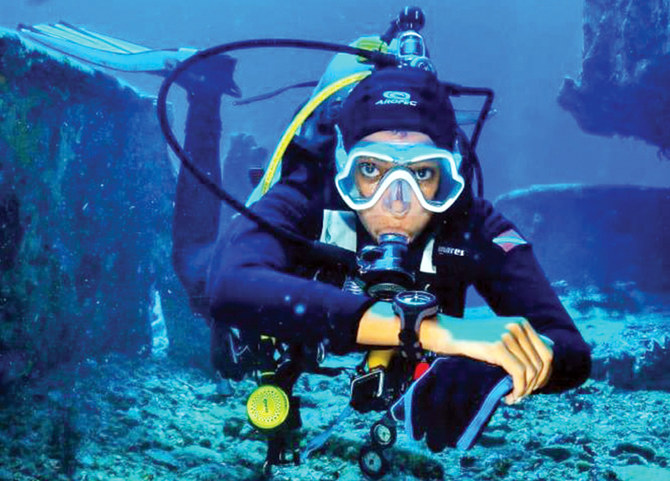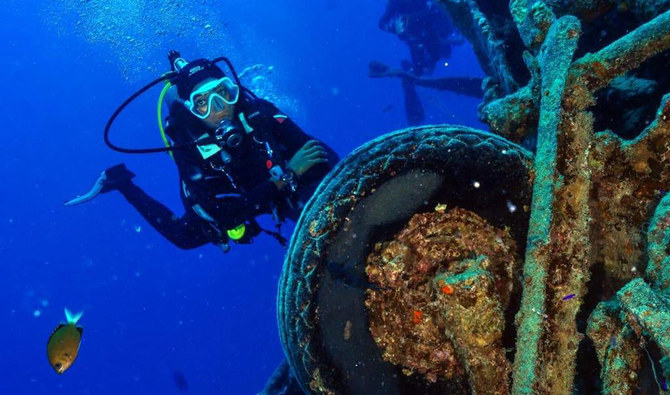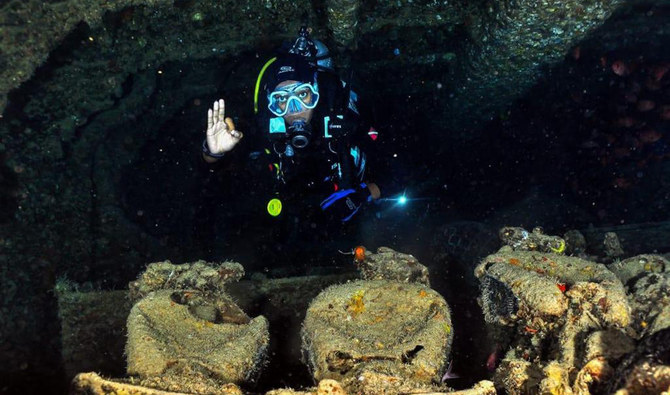JEDDAH: “I’ve probably lived undersea more than on earth,” said young Saudi diver Yasminah Basha, who has turned her favorite hobby into a full-time career.
Formerly an accountant, Basha is a certified professional trainer with two international diving licenses, from the Professional Association of Diving Instructors (PADI) and Scuba Schools International (SSI).
“Three years ago, I started training women of almost all nationalities — Arabs, Asians and Europeans as young as 10 and as old as 59. In fact, I trained many women in their 50s, provided that they didn’t have any health problems,” she said.
Basha attributes her passion for diving to her late father, who was a sailor. “We grew up around the sea all the time,” she said. “Eight years ago, I was intrigued to explore the wonders of the aquatic world, until one day I tried scuba diving — I was mesmerized and addicted since then. I took many courses and seized every opportunity.”
Although diving used to be rare among the conservative Saudi society, the number of divers and trainers from both genders has “increased significantly” in the past five years, said Basha.
Aside from the fact that women wearing diving suits was “socially frowned upon,” her parents were also against diving as they thought it was a “dangerous hobby.”

Yasminah Basha
However, “women nowadays practice all kinds of sports freely without facing past challenges,” she said.
Basha added that the cost of training courses ranges from SR600 ($160) to SR2,000, with a duration of three to seven days maximum depending on the trainer’s efficiency.
She said Jeddah’s private resort Bhadur is the most popular as it is fully equipped for shore diving.
Compared to other less-visited resorts, Bhadur offers safe access to the Red Sea’s biodiversity with unparalleled coral reefs.
To reach more colorful and secluded dive sites, Basha said, boat diving is ideal. But all safety procedures must be followed, such as “knowing divers’ health conditions, locating the closest health center, and having at least one health specialist on board,” she added.
Coastguards, she said, must also be informed about details of the trip in terms of duration and names of the staff and crew.
HIGHLIGHTS
• Formerly an accountant, Yasminah Basha is a certified professional trainer with two international diving licenses.
• Basha attributes her passion for diving to her late father, who was a sailor.
• Women nowadays practice all kinds of sports freely without facing past challenges, she says.
Although the sea is unpredictable and sometimes dangerous, Basha said: “I like to be adventurous while taking safety precautions, and to be close to predator fish without provoking them, because they’re defensive, not offensive creatures.”
She added: “I’m also very familiar with marine species that differ from winter to summer, and from day to night.”
As for the most suitable time for professional and beginner divers, “every day of the year is a great day to dive for those who like to dive all the time, like me,” she said. For recreational divers, “summer season and holidays are usually ideal.”
Basha has recently been taking technical diving courses that entail greater risk due to the involvement of more gas tanks, accelerated decompression stops and deeper dives of 60 meters for longer periods. “It’s totally different and more advanced than other courses, and soon I’ll be able to train it,” she said.
The ambitious trainer plans to dive deeper into the business by taking more courses in the future.
“I’m very passionate about diving and am planning to dive 100 meters deep. I wish to train international instructors soon and have a diving center of my own,” she said.


















